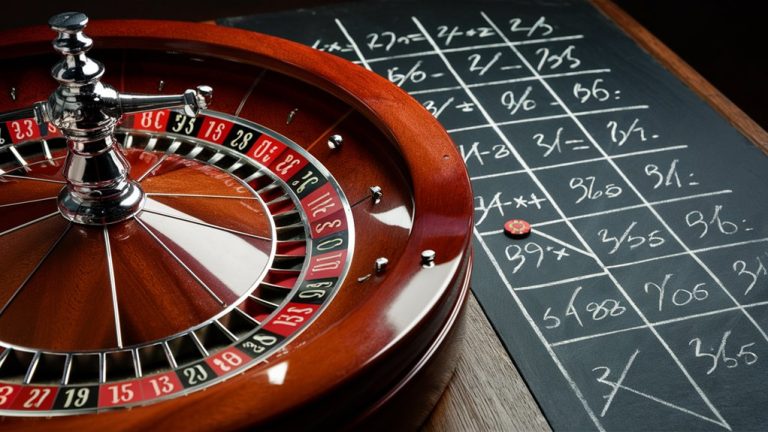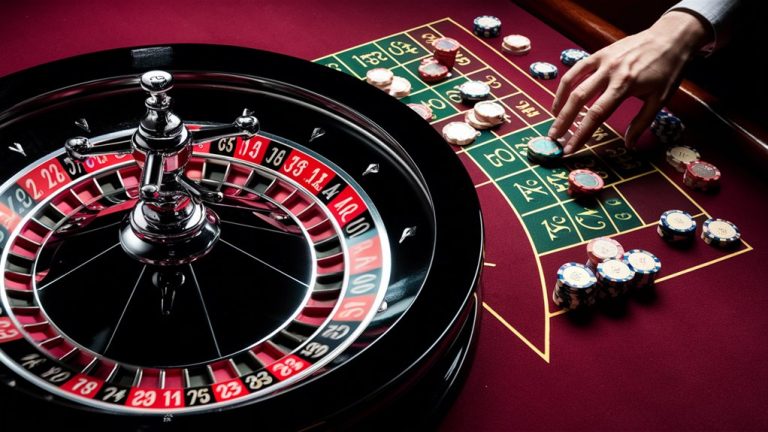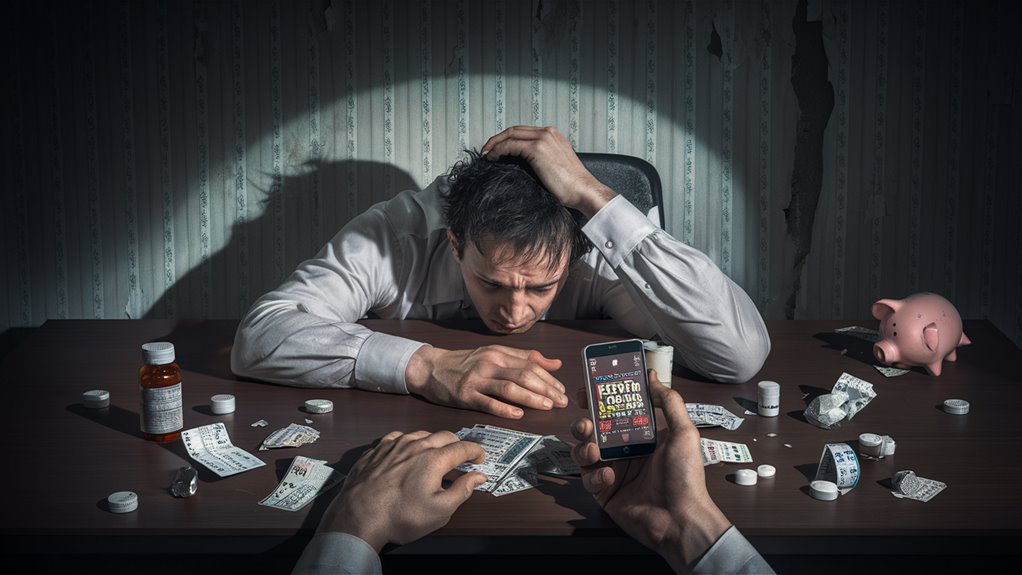
How Gambling Harms Mind Health
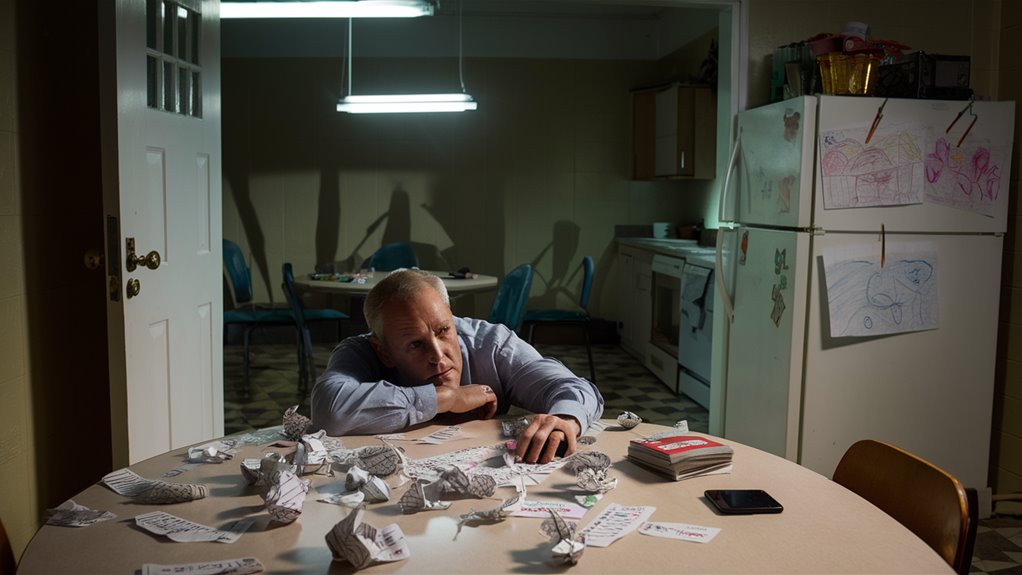
What Gambling Does to the Brain?
Problem gambling shifts how the brain acts because it deals with high-risk and high-reward events. When we gamble, our brains let out a lot of dopamine, making paths that make daily joy less fun. This messes with our choices and feelings, leading to acts that are tough to stop. 여기서 안전성 확인하기
Mind Health and Other Issues
Mind health troubles are common in gamblers, and studies find that 50% of these gamblers feel very sad. Anxious feelings hit about 40% of gamblers, and many turn to other bad habits too. All these problems make for complex mind challenges that need strong fix plans.
Troubles in Social Life and Money
The harm from gambling reaches beyond mind health, hurting both links with others and money matters. Families sink into money holes, trust falls apart, and sad feelings grow. Hiding gambling and dealing with lost money brings a lot of stress, fanning the fire of addiction.
Good Fixes
Healing from mind issues related to gambling is doable with tested ways:
- Cognitive Behavioral Therapy (CBT) swaps bad thoughts for good ones
- Meds help sort out sadness and worry
- Support groups give help from those in the same boat
- Money advice guides paths to better money health
Seeing how gambling ties with mind health helps in finding better fixes and healing, leading to solid recovery.
How Gambling Changes the Brain
How the Brain Reacts to Gambling
The brain’s prize system works through complex paths and stuff that push gambling acts. Dopamine, a big prize chemical, jumps when we win or almost win, making a strong loop that can cause addiction.
Main Brain Spots Hit by Gambling
The part for brain rewards and the choice-making area are key in dealing with gambling. These spots are more active when gambling, just like what happens with other bad habits. Just waiting for a likely prize can let out dopamine even before the result is known, which tells why gambling goes on even with losses.
Effects from Long-Time Gambling
Ongoing gambling greatly shifts how the brain deals with prizes. Long-time gambling makes normal fun less thrilling, making it tough to enjoy non-gambling joy. This often calls for expert help to reset normal prize responses and stop addiction loops.
Long-Time Changes in Enjoying Prizes
- Weaker dopamine hits
- Changed brain paths
- Less pull to fun
- New needs for rewards
- Worse choice-making
These brain changes show the need for early and strong fix plans for gambling recovery.
Common Mind Health Problems
Sadness and Gambling: A Tough Mix
Sadness is a big side problem in gambling cases, touching 50% of gamblers with troubles. The link goes both ways – gambling can start sad periods, while being low can push people to gamble as an outlet. This cycle makes fixing it hard and calls for strong, wide care.
Worry Issues and Gambling Troubles
Worry issues often come with gambling troubles, with around 40% of troubled gamblers feeling strong worry. Wide and sudden fear problems show up with gambling troubles. These get worse with money losses or when trying to stop, adding more blocks to recovery.
Bad Habits and Tough Personalities
Double trouble with gambling and bad habits is common, with 30% of gamblers also having drink problems and 20% dealing with other bad habits. Hard personalities, like bold or defiant ones, play a big part in how well fixes work and the chance of sliding back into old ways. This complex mix needs special care that looks at all mind issues at once.
Care Needs
Having many mind troubles asks for a wide care plan that deals with both the gambling and tied conditions. Strong recovery plans use ways to sort out sadness, worry, bad habit use, and tough traits while looking at the core gambling acts.
Signs of Gambling Troubles
How to See Gambling Issues
Money Warning Signs
Problem gambling often starts with clear money moves. Main signs are:
- Trying to win back money by gambling more
- Borrowing money just for gambling
- Hiding money moves tied to gambling
- Building up secret debts
Changes in Time and Acts
The path to gambling addiction often shows in changes in how we use time and what we do:
- Many hours spent gambling
- Not doing work tasks well
- Not spending time with family
- Always thinking about gambling
Moods and Thoughts Signs
Big mood swings are signs of bad gambling acts:
- Getting mad when trying to cut down
- Can’t stop thinking about gambling
- Using gambling to deal with feelings
- Being touchy when gambling is talked about
Body Signs
Problems from gambling often show in the body:
- Sleeping badly
- Feeling more tight
- Changes in eating ways
- Feeling body stress
Social Effects Signs
Heavy gambling often harms how we connect with others through:
- Pulling away from others
- Keeping acts secret
- Not going to social events
- Tense family talks
Seeing these early signs helps start help early and boosts recovery chances. Often, many signs show up together, making a clear picture of troubled gambling acts that need expert help.
Family and Close Ones
What Gambling Does to Families and Close Bonds
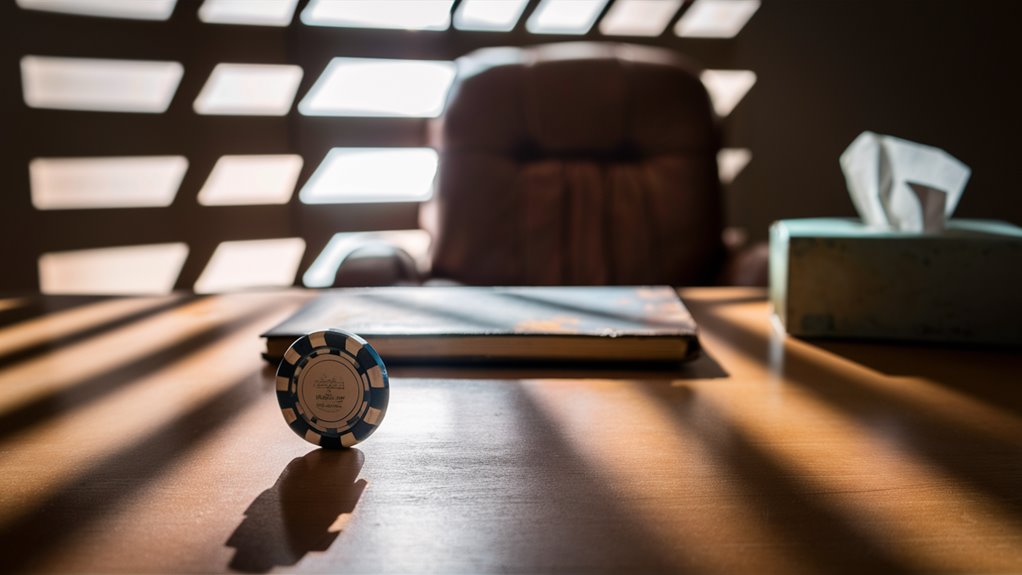
Family Trouble
The damage from problem gambling spreads across whole family groups, making deep cuts beyond just the person with the problem. Money trouble often hits first, as gambling takes up family money and builds debt that touches every member. When gamblers hide their acts or secretly take family money, the core trust in family ties suffers a lot.
Kid’s Impact
Kids of problem gamblers face really tough times. They often go through:
- Feeling left out and changing ways of parenting
- Unstable day-to-day life and home steadiness
- Worries about money safety
- Trouble making and keeping friends
- Feeling sadder than other kids
- A higher risk of gambling issues later
Close Bonds and Partnerships
Problem gambling puts a lot of stress on close links through:
- Pulling back in feelings and feeling alone
- Communication breaking down and more fights
- Lying about money and trust problems
- Stress signs like not sleeping and worry
- More fights at home and breakups
Studies show that links harmed by gambling have much higher split rates and more home fights, often leaving lasting sad effects throughout the family.
Getting Better from Gambling
How to Beat Gambling Problems
Proven Care Ways
Cognitive Behavioral Therapy (CBT) is a main way to get over gambling issues, looking at both acts and mind troubles. This method helps people find what starts their gambling, change bad thought paths, and make good plans to manage life better.
Help from Others
Gamblers Anonymous and other support groups give key group help with structured steps. Recovery spots provide strong care settings where people can focus on getting better away from gambling pulls. These spots usually have both one-on-one and group times.
Meds and Treatment
Meds are very useful in dealing with other mind troubles. Meds for mood and worry are good in treating linked depression and worry, while mood checks help sort out acts. Doctors look after med use during the healing road.
Money Recovery Ways
Money advice and fix are key for complete care. Money pros help make debt management plans, set up money checks, and make long-term money strategies. Making safe steps for money involves:
- Checking accounts How Gambling Ads Target Vulnerable Audiences
- Limited spending
- Planned paying back ways
Stopping Going Back
Long-term healing depends on strong plans to keep from sliding back into old habits, including:
- Putting in software to block gambling sites
- Giving money control to someone else for a while
- Making strong support groups
- Setting plans for tough times
- Keeping regular therapy times
